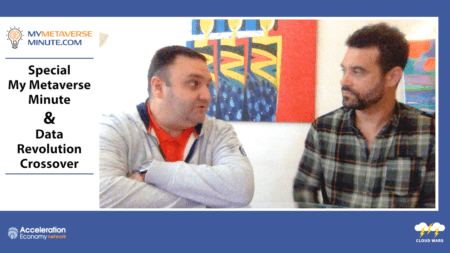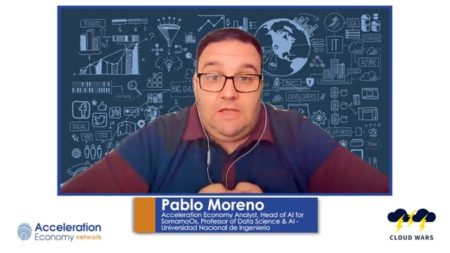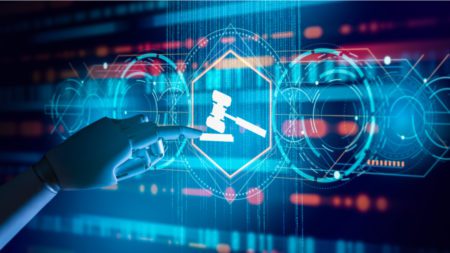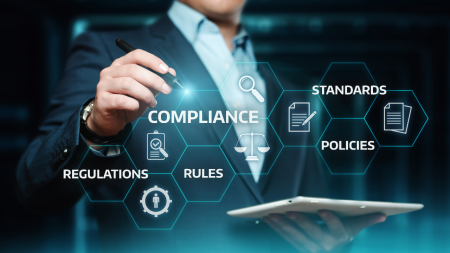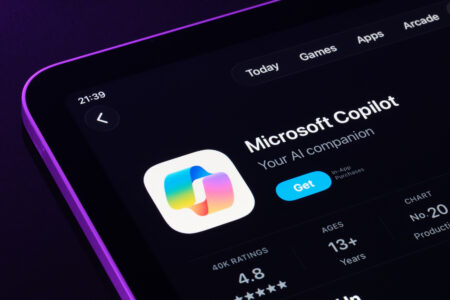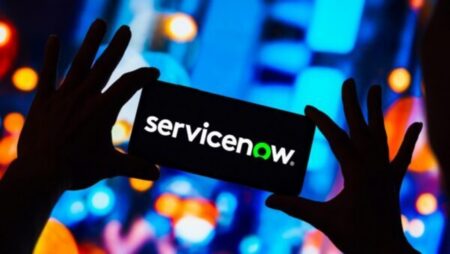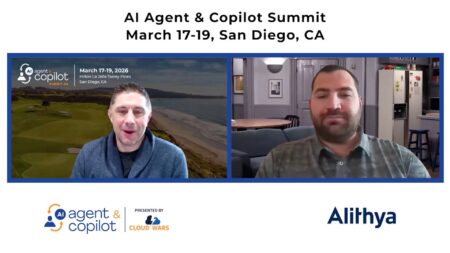In this My Metaverse Minute, Kieron reviews Dubai’s virtual asset regulator, VARA, and how this is a step forward for governance.
Search Results: governance (824)
In this My Metaverse Minute, Kieron is joined by Pablo Moreno to discuss the challenges of data and the Metaverse.
In this Data Revolution Minute, Pablo talks about how companies need to have strong governance over who has access to data.
This four-step framework can help guide your company through the process in actively implementing risk management.
As business leaders and data scientists are investing in bigger AI aspirations, AI governance is needed to overcome ethics concerns and a lack of trust.
In this Enterprise AI Minute, Aaron explores how governance is a critical component for the future of artificial intelligence.
IT governance is traditionally clunky and bureaucratic. How can we balance innovation with governance in the age of citizen development?
Michael Oliva is a Data & Technology Solutions Architect at DataRunway. He has 15 years of professional experience helping organizations…
Many companies have technical sprawl: apps, automation, SaaS & on-premise systems, and much more. What can the CFO do to mitigate risk and create a plan for strategic investments? In this “Back @ IT” episode, Aaron Back chats with Nick Lumsden to explore these areas more.
Meeting strict corporate governance regulations is essential for businesses in the financial industry. Staying in compliance with these guidelines is…
Data governance campaigns should be fluid and pragmatic. Learn three keys to creating a successful, frictionless, and understandable process.
2021 promises to be an important inflection point for AI policy. In this piece by Brookings Institute, learn about 6 developments in governance aimed toward more principled use of AI – including the new National AI Initiative office, the European Commission’s Digital Services Act, and more.
Explore how to adopt the Power Platform at scale across a large organization, and discuss how administrators, architects, and program/project managers can govern, manage, and operate the Power Platform in service to their business-focused customers.
The discussion will include an overview of the current state of the platform, and dive into several of the tools and techniques used to manage and govern the platform, including the Power Platform Adoption Framework and the Center of Excellence (CoE) model.
Session Level: Intermediate
As the adoption of Teams is increasing along with that have increased the Teams sprawl. One of the methods to avoid the Teams Sprawl is to add the governance policies and automate the Teams creation via the approval process.
In this demo-driven session, we will cover how to implement Teams Governance using Power Automate, Microsoft Graph APIs, and SharePoint.
You will learn:
1) Microsoft Teams Governance via Automation
2) Automate Microsoft Team Provisioning using Power Automate, Microsoft Graph APIs, and SharePoint
3) Automate Microsoft Team Provisioning using Logic Apps, Microsoft Graph APIs, and SharePoint
Session Level: Advanced
Financial services, manufacturing, and retail are leading AI agent implementation, demonstrating how operational use cases are driving measurable transformation across high-impact sectors worldwide.
The company’s first Autonomous Workforce deliverable is a Level 1 Service Desk AI Specialist that diagnoses and resolves common, low-priority IT support requests.
Alithya’s Chad Weiner breaks down how to move from AI curiosity to real execution using Copilot Studio and Microsoft 365 agents.
Herain Oberoi highlighted two fundamental AI-Era cybersecurity questions: Can we trust the data, and is the AI system safe and secure? These concerns underpin Microsoft’s integrated governance and security strategy.
New products deliver visibility, governance, and data protection controls over agents built internally as well as those from Microsoft and third parties.
Security Dashboard for AI is built to rein in AI sprawl with Defender, Entra, and Purview integration as well as inventory functions that span Microsoft and widely used third-party AI software.



